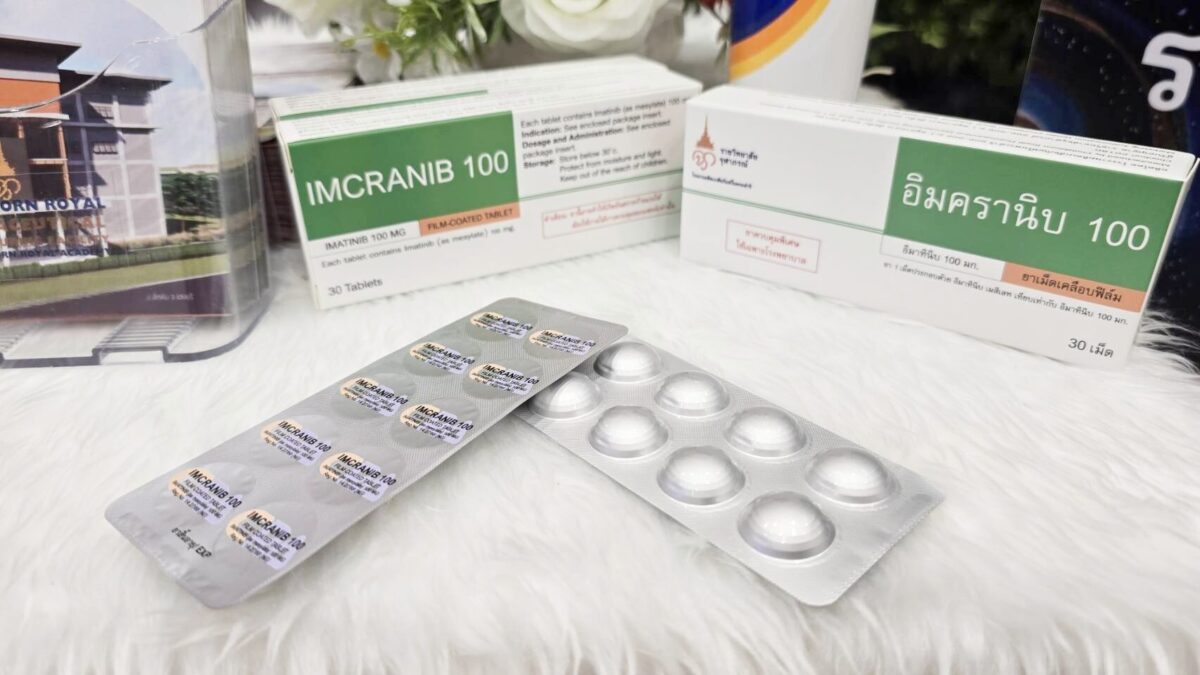Thailand has launched its first domestically developed targeted cancer treatment, Imcranib 100, following official approval on 20 May 2025, marking a significant step in the country’s pharmaceutical capabilities and cancer care strategy.

Chulabhorn Hospital announced that the oral medication Imcranib 100, which contains 100 mg of the active compound imatinib, will be introduced in July 2025 through a pilot programme. The drug is designed to inhibit tyrosine kinase enzymes, known to drive the progression of several cancer types. It offers targeted therapy with reduced side effects compared to traditional chemotherapy.
Imcranib 100 has been approved for treating multiple cancers, including chronic myeloid leukaemia (CML), Philadelphia chromosome-positive acute lymphoblastic leukaemia (Ph+ ALL), gastrointestinal stromal tumours (GIST), and the rare skin cancer dermatofibrosarcoma protuberans (DFSP). Although imatinib is already included in the Thai health insurance system for certain conditions, this domestic production aims to expand access to all approved indications.

The rollout will be supported by structured clinical systems, with monitoring protocols and collaborative teams of healthcare professionals overseeing its use. The integration of Imcranib 100 into the treatment programme at Chulabhorn Hospital reflects a commitment to improving patient outcomes and building a more self-reliant pharmaceutical sector.
Beyond its clinical implications, this development is seen as a major advance in Thailand’s capacity for research, drug formulation, and manufacturing. It also reinforces local expertise in regulatory compliance, pharmacological evaluation, and quality assurance, positioning the country for future drug innovations.
The initiative forms part of a broader cancer research and treatment policy led by Her Royal Highness Princess Chulabhorn Krom Phra Srisavangavadhana, who has championed a comprehensive approach to oncology focused on access, innovation and patient care.




